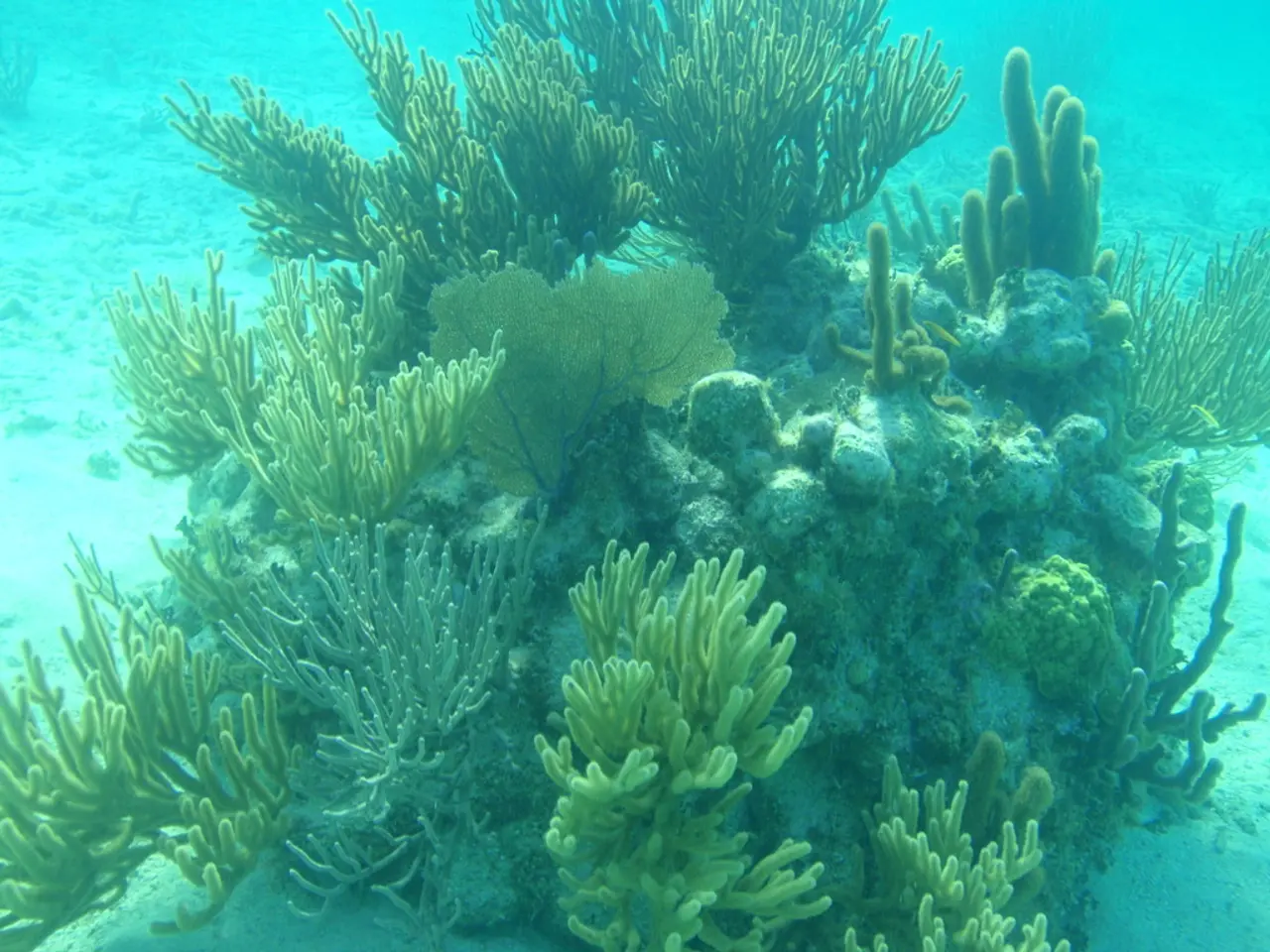Advancing Surveillance and Regeneration of Coral Reefs: the CoralCarib Initiative
In the heart of the Caribbean, a collaborative project known as CoralCarib is making significant strides in the conservation of coral reefs. Funded by the Federal Ministry for the Environment, Nature Conservation, Nuclear Safety and Consumer Protection of Germany, under the International Climate Initiative (IKI), this project brings together teams from Haiti, Dominican Republic, Jamaica, and other organisations.
The Haiti team, working with the Initiative for Environment and Integrated Development in Haiti (IEDIH), has been actively conducting learning exchanges and building community awareness. Their efforts culminated in a meeting to assess threats to the marine and coastal biodiversity within the Baraderes-Cayemite climate refuge.
Meanwhile, the Dominican Republic team has been busy collecting baseline data on microfragments of coral and their growth rates. They are also monitoring nurseries using 3D models and assessing the impact of bleaching on corals.
The Jamaica CoralCarib team recently visited the East Portland refugia site, contributing to the project's collective knowledge and understanding of these vital ecosystems.
The Coral Restoration Foundation, the largest reef restoration organisation in the world, played a crucial role in organising the Comprehensive Work Planning Session in Miami. The session, which took place from January 24-26, aimed to review progress during the first year of CoralCarib, share insights on major activities and challenges, strengthen workplans for year two, align common strategies across multiple refugia sites, and foster teamwork and collaboration across all four countries.
In December, a team, including the Haiti Ocean Project, recorded depth, documented coral species, and took photographs at the Baraderes-Cayemite marine protected area. This data was instrumental in confirming the area as the outplanting location for the refugia site.
The CoralCarib project is a testament to international cooperation in the face of environmental challenges. As the team continues their efforts, they are not only protecting the Caribbean's coral reefs but also setting an example for global conservation initiatives.








